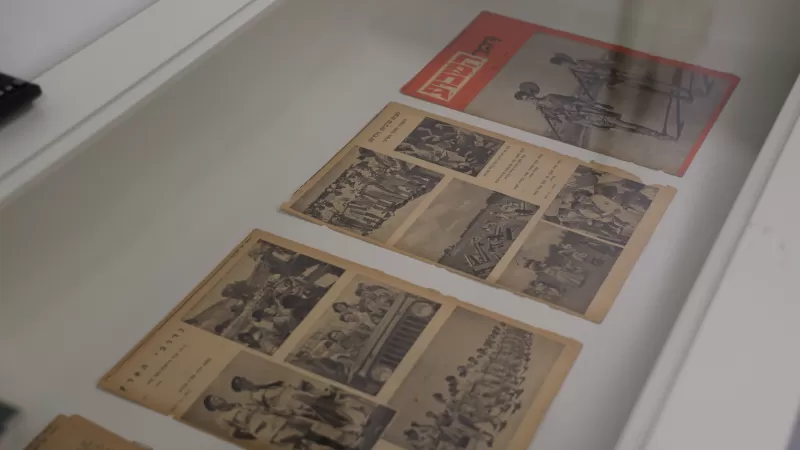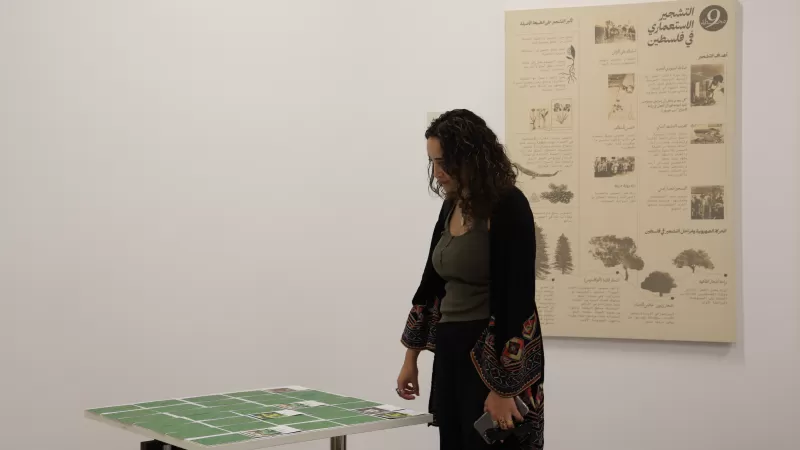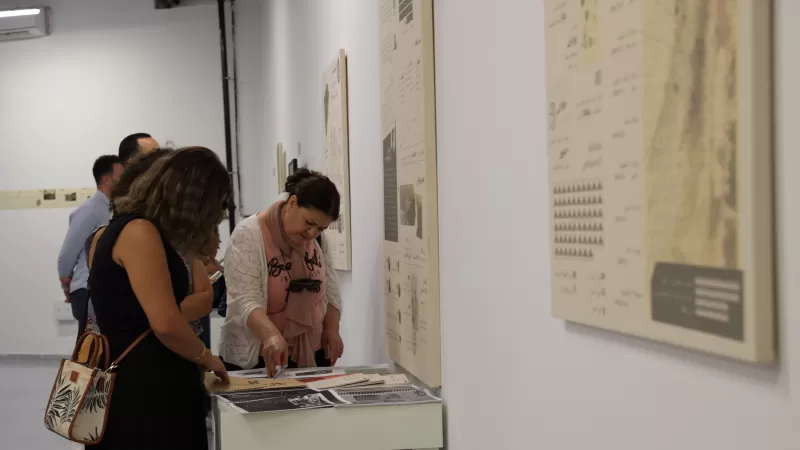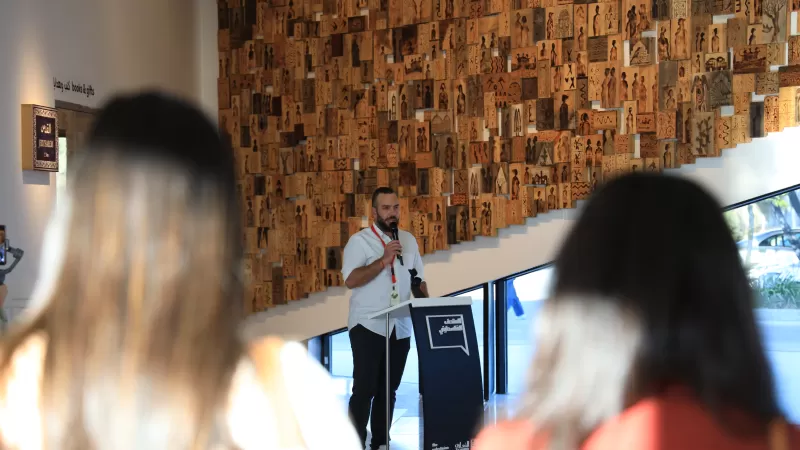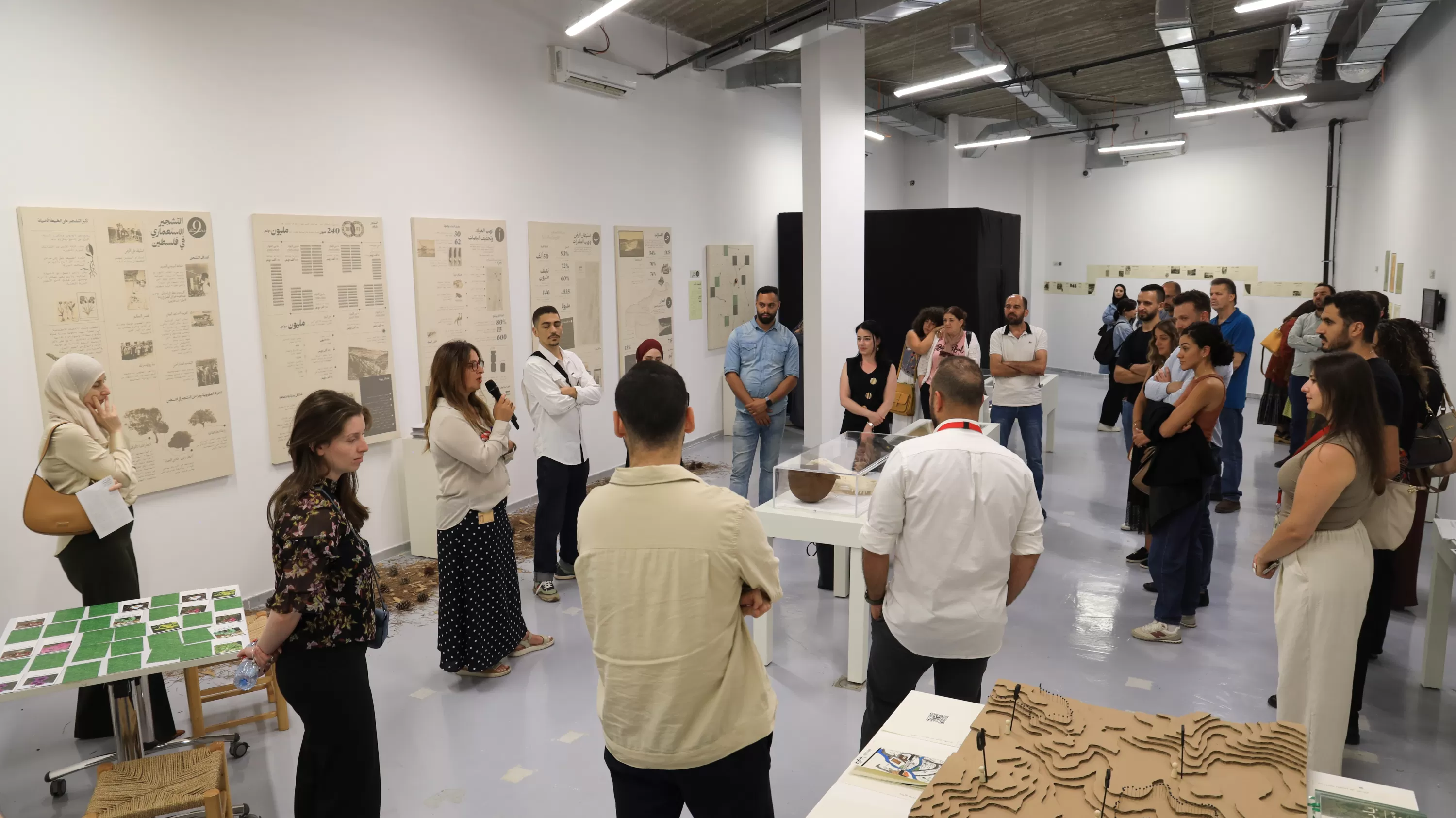
Ramallah–Birzeit – The Palestinian Museum today inaugurated the exhibition Tijwal, organized by Baladna – Association for Arab Youth (Haifa), as part of the “Spaces” project launched by the Abdul Mohsen Al-Qattan Foundation, in partnership with several cultural institutions across Palestine. This collaboration aims to highlight the sensory and knowledge-based experience accumulated by the Tijwal project over six years of walking, research, and documentation throughout various parts of Palestine.
The exhibition offers a visual and intellectual exploration of Palestine and its people. It sheds light on the transformations that have taken place in the land, the actions and histories of its inhabitants, and the imprint they have left in resisting successive waves of colonization, through the revival of their oral narratives, which form the fabric of the Palestinian collective identity. The exhibition seeks to produce knowledge rooted in the field, drawn from direct engagement with the people and their inherited stories and lived experiences.
This experience is the result of years of fieldwork by the Association for Arab Youth, whose team travelled between Palestinian towns and villages from north to south, observing daily and social life and capturing the fine details of Palestinian identity. The team based its work on popular heritage and the social and political history of Palestine before and after the Nakba, to construct a comprehensive Palestinian narrative that originates from the people and returns to them.
The exhibition also aims to present a holistic understanding of Palestine; one that blends the intellectual, sensory, and aesthetic; and brings together the historical, political, social, cultural, and environmental dimensions. It raises the question of knowledge as a prerequisite for loving and belonging to the land, affirming that understanding Palestine is incomplete without awareness of its history and without linking its everyday realities to the broader context of the struggle for freedom, justice, and dignity.
Khalil Ghara, coordinator of the Tijwal project, explained: “Through this exhibition, we seek to deepen the role of tijwal (walking) as a Palestinian act aimed at building a collective memory connected to place: to explore it, study it, and engage with it in light of political and geographical changes”. He added, “We are pleased to present this exhibition in collaboration with the Palestinian Museum for the second time, after it was first shown earlier this year at Al-Khashabi Theatre in Haifa. This is an opportunity to spark broader discussion around the practice of tijwal in Palestine”.
Marah Khalifeh, Public Program Officer at the Palestinian Museum, noted that hosting the exhibition is part of the “Spaces” project launched by the Abdul Mohsen Al-Qattan Foundation in Ramallah. She added that it reflects the museum’s ongoing and organic relationship with national civil society institutions in Palestine, especially those active within 1948 occupied Palestine, which the museum sees as an essential extension of the national and cultural fabric. She emphasized the shared belief that culture is a tool of resistance, and that preserving memory and protecting the Palestinian narrative is a collective mission that transcends the barriers imposed by the Israeli occupation.
The urgency of the exhibition lies in its insistence on collective memory and memory of place, in the face of systematic policies of erasure and genocide targeting Palestinians in the West Bank, Gaza, and 1948 territories. Amid checkpoints, surveillance cameras, electronic gates, and systems of separation and control, walking through Palestine is no longer a given; it has become an act reclaimed through imagination, a symbolic form of resistance against displacement and uprooting.
The Palestinian Museum is an independent, non-governmental cultural institution dedicated to fostering an open and dynamic Palestinian culture on both local and international levels. It contributes to the production and presentation of new narratives about Palestinian history, culture, and society. The museum also provides a space for creative projects, educational programs, and innovative research, making it one of Palestine’s most significant contemporary cultural initiatives.
